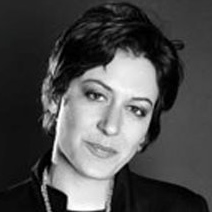click to dowload our latest edition
CLICK HERE TO SUBSCRIBE TO OUR NEWSLETTER


Published
6 years agoon
By
adminPAULA SLIER
The posting was supposed to have lasted two years. But like other Lebanese foreign appointees, he was stuck abroad. This is because, despite the Lebanese Constitution providing for an election every four years, a number of crises had resulted in none being held in more than double that time. That was, until this past Sunday.
The Lebanese went to the polls in the first parliamentary election in nine years, and the first since the outbreak of the Syrian civil war in 2011. During that time, a million Syrian refugees have fled across the border to Lebanon and thousands of Hezbollah soldiers have been killed fighting alongside the army of Syria’s President Bashar al-Assad.
The Syrian war polarised Lebanese society. In last weekend’s election, the militant Iran-backed Shia organisation, Hezbollah, won more than half the seats in Parliament. As shown by the election results, those who’ve benefited the most are Iran and her proxies.
It is exactly what Israel’s Prime Minister Benjamin Netanyahu and his supporters warned about. And although US President Donald Trump’s cancellation of the Iranian nuclear deal will go some way towards limiting Tehran’s influence, in a country like Lebanon, it might already be too late.
While not wholly unpredicted, the results show the growing regional ascendancy of Tehran – through Iraq and Syria, and now Beirut.
For years, Lebanon has been in the middle of the Iran-Saudi Arabia regional rivalry. The biggest loser to Hezbollah’s gains was the Saudi-backed parliamentary faction, headed by Lebanon’s Prime Minister Saad Hariri. His Future Movement bloc lost a third of its seats. This suggests a smaller role to be played by the Saudis in future in Lebanon.
Hezbollah is classified as a terrorist group by the US, Israel, Canada and the Arab League, while the European Union differentiates between its political and armed wings. It emerged with the help of Iran and, after Israel withdrew from Lebanon in 2000, it continued to strengthen its military arm.
In some ways, its capabilities now exceed those of the Lebanese army. Over the years, it has become a key player in Lebanon’s political system and operates almost a mini state in southern Lebanon. It is part and parcel of Lebanese society, a fact recognised by Lebanese and Israelis alike.
Following the announcement of the preliminary election results, the group’s leader, Hassan Nasrallah, praised the people of Lebanon for “a new political victory for the resistance block” and “holding steadfast” against Israel.
Israeli ministers shot back, warning: “The State of Israel will not differentiate between the sovereign state of Lebanon and Hezbollah.” As Education Minister Naftali Bennett said: “Hezbollah equals Lebanon.”
And now the group’s ascendancy suggests that Iran, too, has a stronger-than-ever hold over Lebanese politics. This is bad news for Israel, which already finds Iranian influence in Syria alarmingly close to its borders.
For months, tensions have been rising between Jerusalem, Hezbollah and Iran. Israel is known to have attacked a number of Iranian targets in Syria (Tehran holds Israel responsible for at least five since September). And some observers are suggesting that now that the parliamentary elections are over, an Iranian response, supported by Hezbollah, against Israel is more likely to happen.
But it’s not certain that Tehran will, in fact, strike. Some suggest it will, to save face against Israeli hits. Others say it won’t as Tehran realises that by striking Israel, it risks an all-out confrontation not only with the Jewish state, but potentially with Washington and, perhaps, ultimately forcing Moscow into the fray.
In the meantime, Jerusalem is not taking any chances and for some time has been making preparations along its northern borders with Syria and Lebanon without trying to alarm Israelis living there.
Having said all this, it is important not to sound too alarmist. Firstly, it is not clear exactly how much more sway Hezbollah will have after these elections as Hariri still has the largest Sunni bloc in Parliament. This guarantees his return as prime minister to form the next government. The make-up of the Lebanese Parliament also is such that there is a president who is Christian, a prime minister who is Sunni Muslim and a Speaker of Parliament who is Shia Muslim.
Lebanon needs international donors and economic reform. It has one of the highest debt-to-GDP ratios in the world. Its leaders, including those in Hezbollah, don’t want to shake up the country’s stability and scare away foreign funds.
Israel, too, has a major interest in the country not falling apart, even if Hezbollah has a strong showing in the next Parliament.
Jerusalem doesn’t stand to benefit from a confrontation with the militant group which runs the risk of dissolving into an all-out war with Lebanon. What Netanyahu now needs to do is find a way to limit the Iranian influence in Lebanon. He’s convinced Trump to scrap the nuclear deal – how can he now further stem the tide?
